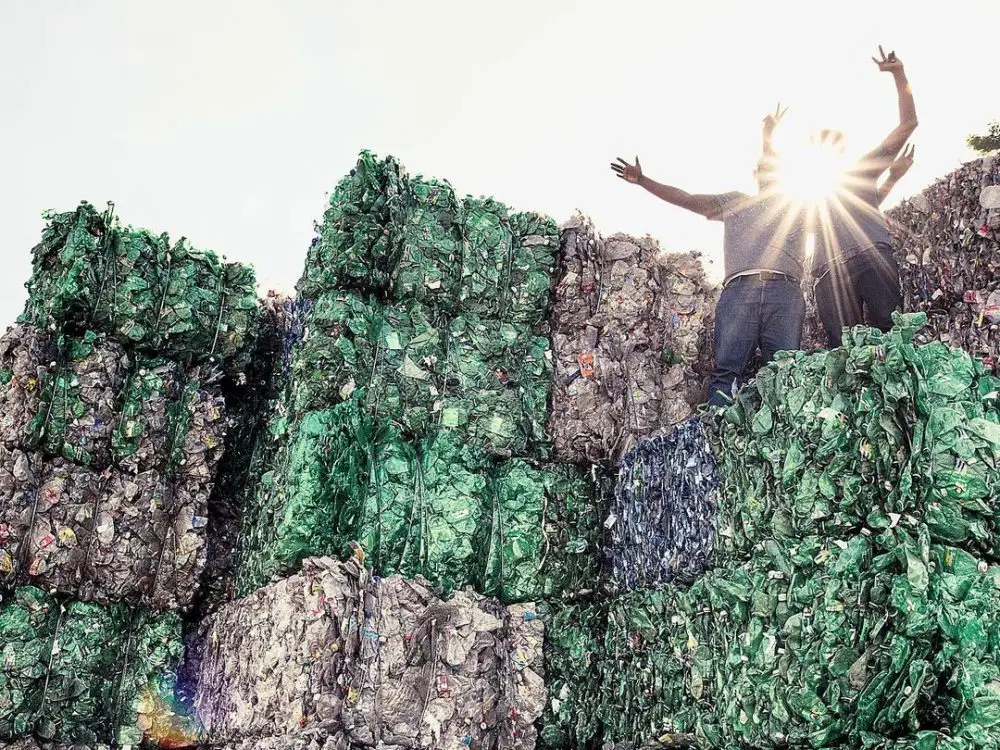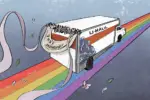Ian Rosenberger, the entrepreneurial genius behind Pittsburgh start-up company Thread International was mobilized by a real problem that needed a real solution. On Jan. 12, 2010, a magnitude 7.0 earthquake struck Haiti, leaving 1.5 million residents displaced, 250,000 dead and 300,000 injured. This natural disaster was the worst that Haiti had ever experienced, coming at an incredibly inopportune time, as Haiti had been experiencing decades of political, economic and social setbacks/inequities for years.
Rosenberger flew to Haiti’s capital, Port au Prince, with the aim to document the devastation through the lens of his camera. His end goal was to sell his photography prints in the U.S. to raise money to cycle back to Haiti to help pay for the relief effort. But Rosenberger’s plan, like many plans, morphed drastically, giving rise to the burgeoning multinational business that Thread International is today.
In 2014, Rosenberger’s work paid off, when he officially introduced the Pittsburgh company start-up that tackles environmental waste and poverty in Haiti. Rather than simply raising money for Haitian citizens, as he had first imagined, Rosenberger created something much bigger: a company that turns plastic bottles into fabric. Rosenberger’s company created a large number of sustainable jobs for poor Haitians and plastic bottle collectors so that they could begin to rebuild their lives — and save the planet.
So how exactly does this spinning plastic bottles into fabric magic happen? In a nutshell, here’s how the Thread model works: Haitians gather up discarded plastic bottles and deliver them to nearby recycling centers. From there, the bottles are washed and ground into a plastic flake, which can be transported more easily. The resulting flake product is then loaded up and shipped to textile processing facilities in the U.S. or China, where it can be broken down and spun into thread, yarn and fabric. The resulting fabric is either 100% polyester or a blended mix of fibers. The overarching goal is to create high-quality fabric that is manufactured in an environmentally responsible way (with minimal water and energy use).
What products does Thread International yield? All sorts of things, including a soft jersey material (i.e. your favorite T-shirt), a rugged, yet supple canvas blend and yes, even denim. Thread International uses these fabrics to create trendy sneakers, backpacks, jeans and t-shirts. And if you automatically assumed that recycled plastic fabric is stiff, scratchy and uncomfortable, guess again — as Rosenberg notes, if you hold a swatch of Thread’s fabric product in one hand and a swatch of natural fabric in the other, you can’t tell the difference, visually or tactilely.
Apart from the logistics that Thread International employs to make the magic transformation from plastic to fabric happen, it’s equally important to consider how the company has prioritized saving our planet and has prioritized being the change that we wish to see in the world since its initiation in 2014. It’s a fact that our planet is slowly crumbling. From climate change, fossil fuels and the billions of plastic bottles floating around in our ocean, to melting ice caps, extinction and forest degradation (wildfires and deforestation), our planet is begging us to make a change. Thread International took a giant step in revolutionizing the way that businesses work — this company showed us what sustainability on the next level really looks like.
Now, let’s talk numbers. Since its founding, Thread International has diverted more than 96 million plastic bottles that would have otherwise ended up in landfills and oceans. This number seems incredible, enormous, life-changing — and it is. However, when we compare this number to how much plastic we use every day and every year, it’s obvious that we still have a long way to go to save our planet. For example, in the U.S., each day, more than 60 million plastic water bottles are thrown away; and each year, 8 million metric tons of plastic wind up in our oceans (and that’s enough trash to cover every foot of coastline around the world with five full trash bags of plastic —compounding every year). Hopefully, with sustainable start-ups like Thread International, fashion companies and entrepreneurs everywhere will latch onto the trend when they realize that creating a successful, sustainable and humanitarian business is a more than viable option.
At the same time that Thread International actively saves our planet by repurposing billions of pounds of plastic that would otherwise be turned to waste, it also fights humanitarian issues in Haiti and Honduras — namely poverty and hunger. Although Thread International only employed Haitians at its inception, today, it employs Hondurans and Taiwanese workers, pumping more than $3.2 million to these indispensable plastic collectors. It’s clear that Thread International is forward-looking, dreaming of a future where millions of underserved, impoverished global citizens can play an integral part in transforming our planet, one small step — and plastic bottle — at a time.
Rosenberger has proved how successful his sustainable and humanitarian company has been, with its rapid growth since its inception in 2010. As Thread International has expanded over the years, big companies have started to purchase their sustainable designs, including big names like Timberland, Reebok and Kenneth Cole; this just goes to show that big fashion names are willing to join the sustainability movement. In 2017, some of the company’s designs were even showcased at New York Fashion Week. It’s no surprise then, that 2020 brought about changes to meet the needs of Thread International’s increased demand. To solve this issue, Rosenberger decided to create two separate branches within the company — First Mile and Day Owl.
First Mile now encompasses all overseas supply chains, selling the recycled plastic fabric that they make for other brands. Meanwhile, Day Owl will continue to create and sell Thread’s own sustainable products and designs in its storefront location in Pittsburgh. This new era for Thread International proves how globalized this company has become, and how brands everywhere are joining the sustainable fashion track, buying Thread International’s recycled fabric.
This is a small business success story that has gained international acclaim. Thread International is a prime example of how a social enterprise start-up can address social challenges while also being sustainable, at the global level. Hopefully, start-up businesses and rich companies alike can learn that creating a successful, sustainable company that tackles the pervasive problems of environmental waste and poverty is in anybody’s wheelhouse. As Rosenberger himself states: “We really believe that every single product that’s made should be made out of sustainable materials. If not, customers should be saying, ‘Why not?’”
Let’s hold ourselves accountable and create a sustainable, humanitarian future that we can all be proud of.

















